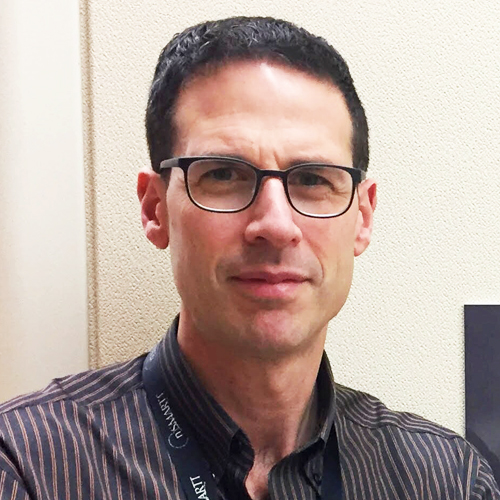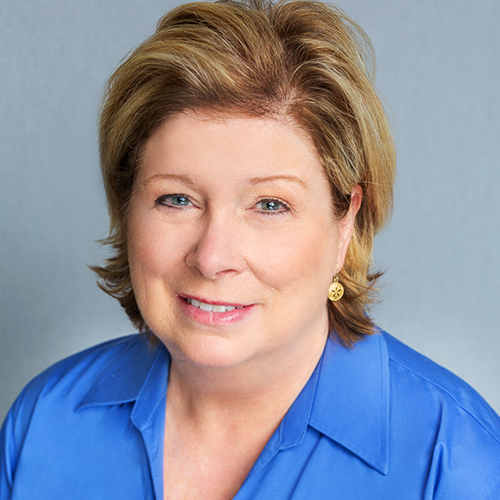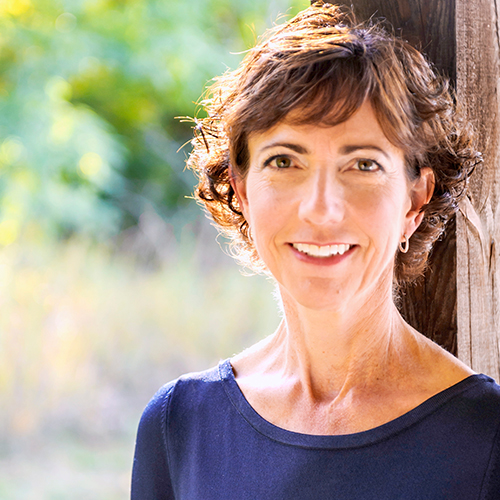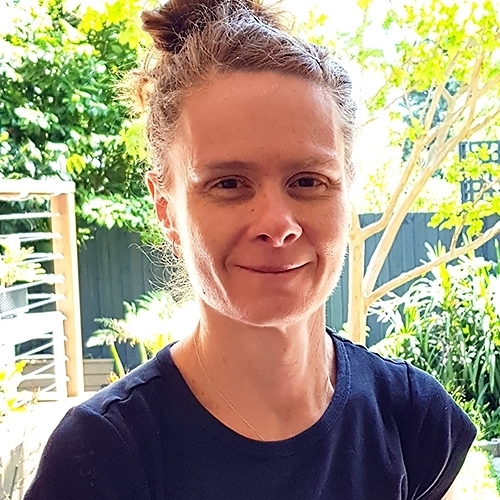 IBCLC Detailed Content Outline: Pathology / Infant Focused CERPs - Section III A
IBCLC Detailed Content Outline: Pathology / Infant Focused CERPs - Section III A
Access CERPs on Pathology / Infant for the IBCLC Detailed Content Outline recertification requirements. On-demand viewing of the latest Pathology / Infant focused IBCLC CERPs at your own pace.
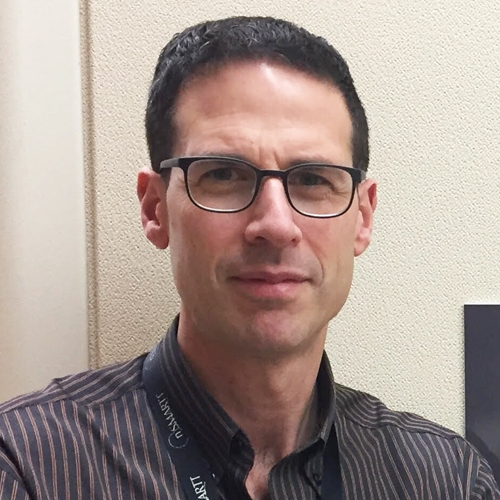

Dr. Narvey began his training in Pediatrics at the University of Manitoba in Winnipeg where he completed a year of further training in Neonatology. This was followed by two years of Neonatal fellowship at the University of Alberta in Edmonton. Afterwards he began his career as a Neonatologist in the same city and over the 6 years he spent there, his career included both clinical and administrative duties including 4 years as the Fellowship Program Director and two years as the Medical Director for a level II unit. In late 2010 he accepted a position in Winnipeg to become the Section Head of Neonatology and continues to hold this post. In 2016 he took on the additional role of Medical Director of the Child Health Transport Team. In 2015 he became a member of the Canadian Pediatric Society’s Fetus and Newborn Committee and in 2019 took over as Chair of the same. His interests predominantly lie in the use of non-invasive technology to minimize painful procedures during an infants stay in the NICU. He is active on social media and has a passion for fundraising and is an active board member of the Children’s Hospital Foundation of Manitoba.
Topic: Human Milk Diet and Fortification: Controversies and Evidence - [View Abstract]
Topic: Many Different Shades of Yellow - [View Abstract]
Topic: Respiratory Problems in the Newborn: Where Are We in 2022? - [View Abstract]
Topic: Sweet and Sour: Hypoglycemia in the Newborn - [View Abstract]
Newborns may develop respiratory distress for a number of reasons. Using a case study approach, several conditions will be explored with emphasis on what the standard of care is and what is the latest in our 2022 toolbox for treating them.


Sejal is an International Board Certified Lactation Consultant (IBCLC) in private practice and an infant massage educator in Hillsboro, Oregon, USA. She combines her professional expertise with her personal instincts as a mother and a supportive team member.
She holds a Bachelors in Microbiology and Clinical Laboratory Science.
She also brings with her the following comprehensive toolkit: Certified Educator of Infant Massage, Formerly Certified in skin-to-skin care for full term infants from the United States Institute of Kangaroo Care Certified Provider of Innate Postpartum Care.
She has presented nationally and internationally for GOLD lactation, ILCA, community colleges, local lactation organizations.
As a lactation consultant, she believes that every individual needs to be educated about breast health, optimal infant feeding and how breastfeeding support is a basic human right and can impact world health globally.
She strives to help each family by continuing to learn all she can about breast health, breastfeeding ecology, breastfeeding movement and parent-infant connection using the neurobiological and infant mental health lens.
When she’s not with her clients, you can find her at home in Hillsboro, Oregon, USA, listening to bollywood music, hanging out with friends and spending time with her family.
Topic: Calm & Regulated: Rethinking Our Approach to Latch and Positioning - [View Abstract]
Topic: Teaching Infant Facial Massage to Parents to Support a Functional Latch - [View Abstract]
Background: The benefits of massage have been shown in many research studies. Massage relieves stress, pain and muscle tension. We expect to show that the same benefits can be achieved when facial massage is used to optimize a baby’s oral structures to support a functional latch.
Method: We hope to use facial massage as a tool for babies that do not have an optimal latch. Babies born with gestational constraints, traumatic birth, exposure to stress during pregnancy or babies with tethered oral tissues may benefit from a parent massaging their face. Attendees will have access to handouts and a video link and may use their own face to practice the facial massage strokes.
Results: Building strength by oral and facial muscles, relaxing tension in the jaw, the lips, the muscles around the lips, and muscles of facial expression may help optimize the latch and hence prevent nipple damage.
Conclusion: IBCLCs can have an extra tool in their toolkit to offer to new parents. Facial massage techniques to support a functional latch can increase a parent’s confidence in caring for their baby, while increasing the levels of oxytocin and thereby promoting parent-infant bond

View Details / Enroll

View Details / Enroll
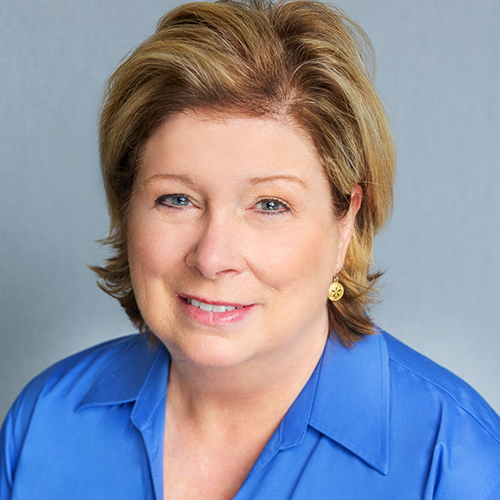

Dr. Scott is the coordinator of the advanced practitioner group for Mednax Medical Group in Nashville, Tennessee as well as the coordinator of the neonatal transport service at Centennial Medical Center, also in Nashville. She is also an assistant professor in the neonatal nurse practitioner program at Vanderbilt University School of Nursing. For the last few years, she has become interested in the use of telemedicine in neonatal care and works with a Neonatology practice that actually practices using telemedicine in Level I and II facilities. She is also involved in quality improvement at the state level through her work with the Tennessee Initiative for Perinatal Quality Care.
Patti received her Bachelor’s Degree in Nursing from Vanderbilt University in 1988. Her Masters of Science Degree in Nursing with a specialty in neonatal critical care was completed in 1993 from Vanderbilt University and her Doctorate in Nursing Practice from the University of Tennessee Health Science Center. She has successfully completed the National Certification Corporation's Neonatal Nurse Practitioner, Neonatal Pediatric Transport, and the Neonatal Intensive Care examinations.
Patti is a member of several nursing, advanced practice, and neonatal professional organizations. She is an active NRP and S.T.A.B.L.E. instructor and has developed and provided numerous neonatal educational courses for staff.
The use of telemedicine is an emerging trend in health care, this includes neonatal care. Benefits include real-time access to experts routinely and during emergency situations such as delivery room resuscitations and stabilizations, the ability for families to stay connected to their newborn in the Newborn Intensive Care Unit (NICU) after the mother has been discharged from the hospital, and to assist in the decision for transport of the newborn to a higher level of care. Several studies have documented the reduction in transfers from community hospitals since telehealth has been implemented in the nursery. Limitations include the need for knowledgeable and experienced providers to be at bedside, physicians who are familiar with advance practice providers and their abilities, and the technical challenges that can present and have to remedied.
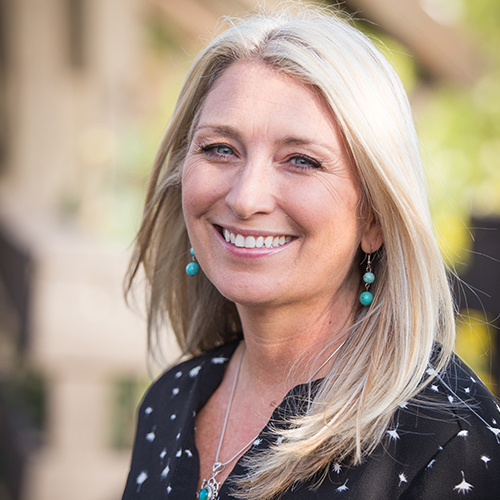

Laurel Wilson, IBCLC, CLE, CCCE, CLD is a TEDx and international speaker, author, pregnancy and lactation expert, and consultant. She served as the Executive Director of Lactation Programs for CAPPA, the Childbirth and Postpartum Professional Association for 16 years and now is on the Senior Advisor Board. She served on the Board of Directors for the United States Breastfeeding Committee from 2016-2019. She also is on the Advisory Board for InJoy Health. She owns MotherJourney, focusing on training perinatal professionals on integrative and holistic information regarding pregnancy, childbirth, and breastfeeding. She has her degree in Maternal Child Health: Lactation Consulting and is an internationally board certified lactation consultant. As the co-author of two books, The Attachment Pregnancy and The Greatest Pregnancy Ever, original Editor of the CAPPA Lactation Educator Manual, and contributing author to Round the Circle: Doulas Talk About Themselves, she loves to blend today’s recent scientific findings with the mind/body/spirit wisdom. Laurel has been joyfully married to her husband for nearly three decades and has two wonderful grown sons, whose difficult births led her on a path towards helping emerging families create positive experiences. She believes that the journey into parenthood is a life-changing rite of passage that should be deeply honored and celebrated.
Topic: Epigenetics and Breastfeeding: The Potential Longterm Impact of Breastmilk - [View Abstract]
Topic: Hold the Phone! Diet Does Matter During Breastfeeding: Implication of Diet on Fatty Acid Composition and Other Nutrients - [View Abstract]
Topic: Postpartum Mood Disorders, Breastfeeding and the Epigenetic Links from Past Into Future - [View Abstract]
Topic: Talk To Me: How Breastmilk Acts as a Communication and Gene Expression Tool Between Mother and Child - [View Abstract]
Topic: The Milk Sharing Conundrum - The Grey Area Between Scope and Need - [View Abstract]
Topic: The Placenta and Breastmilk-Unraveling the Mysterious World of the Intelligent Organs that Protect our Babies - [View Abstract]
Topic: Understanding Zika and Lyme and Breastfeeding - [View Abstract]
Topic: Unraveling the Mysteries of Human Milk: The Fascinating Role of Neohormones, Epigenetics, the Microbiome and More! - [View Abstract]
With the recent spread of the virus, Zika and the bacterial infection, Lyme Disease, many pregnant and breastfeeding families worry about the potential impact on their babies. There is a great deal of inaccurate information on the internet regarding these diseases that many parents encounter. Having good resources and current information on these emerging diseases is imperative for new families. This presentation will address transmission of the diseases, risks to babies prenatally and during breastfeeding, and precautions for pregnant and breastfeeding mothers to take.

View Details / Enroll
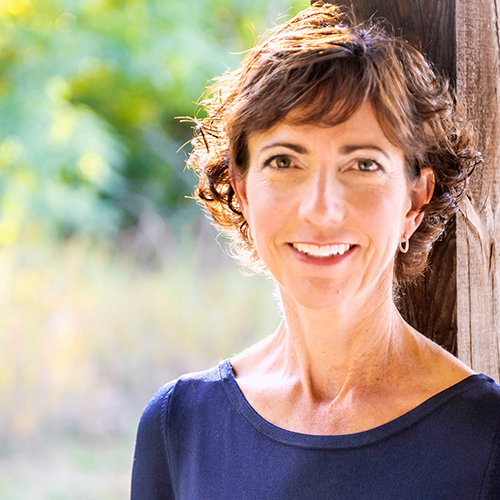

Dr. Unger is a neonatologist at Sinai Health in Toronto, Canada. She is the medical director of the Roger Hixon Ontario Human Milk Bank and a professor of pediatrics at the University of Toronto. She is a co-primary investigator for the Canadian Institutes of Health Research funded MaxiMoM: Maximizing Mother’s own Milk Program of research. Dr Unger graduated from medical school at Dalhousie University on the east coast of Canada. She is the proud mother of three teenage daughters.
Although human milk confers important health promotion benefits to all infants, vulnerable babies admitted to an NICU stand to benefit even more. Their parents are typically strongly motivated to provide their own milk, although for a variety of reasons, such as parental ill health and stress (often complicated by the pandemic), parents may not have a full volume of their own milk. In this case, donor milk is the recommended supplement to bridge until parent’s milk is available. There is strong research evidence to support the use of human donor milk in preterm infants to prevent necrotizing enterocolitis, while there is less available evidence for the use of donor milk in late preterm infants. There are important differences between parent’s milk and donor milk with respect to their nutrient and non-nutrient components which may be secondary to processing techniques used in creating batches of donor milk. It is important to understand these differences and be able to interpret nutritional labelling on donor milk. Newer techniques in pasteurization may address some of the losses of bioactive molecules in human milk.

View Details / Enroll
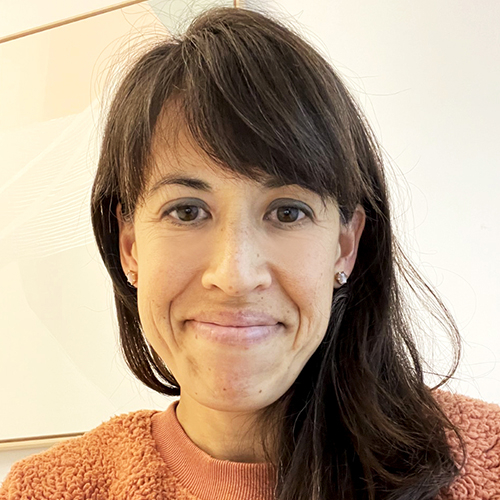
What Is Stopping Us? Kangaroo Care Implementation in Neonatal Intensive Care Units

Sarah Coutts is a registered nurse and lactation consultant with over 10 years experience in the neonatal intensive care unit. She currently is working as a Developmental Care Specialist in a NICU in Vancouver, Canada. Previous to this position Sarah was the Kangaroo Care Coordinator of an implementation science study to improve uptake of Kangaroo Care in NICUs in British Columbia. She is part of team of clinicians and researchers interested in understanding the barriers and enablers to Kangaroo Care from both the healthcare provider and parent perspectives and creating innovative strategies to increase knowledge and practice of Kangaroo Care in the NICU. She is passionate about raising awareness of the positive outcomes of zero separation between preterm and sick infants and their parents in the NICU.
Preterm infants are at increased risk for impaired neurodevelopmental outcomes (Stoll et al, 2010). There is evidence supporting the differences in outcomes related to how we provide care to preterm infants and the effects of the environment in which the care takes place. One of the most effective ways to reduce impaired infant outcomes is inviting parents to actively participate in care activities and provide Kangaroo Care (Boundy et al., 2016; Charpak et al., 2017). Despite international recommendations, empirical evidence, and an implementation science project focused on strengthening Kangaroo Care in neonatal intensive care units in British Columbia, Canada, implementation has been slow due to various barriers to uptake (Charpak et al., 2020; Coutts et al., 2021; WHO, 2020). A ‘one size fits all’ approach cannot guide Kangaroo Care implementation as it is a complex intervention and each NICU presents unique barriers and enablers. The uptake of Kangaroo Care relies on the involvement of parents and healthcare providers and their understanding and commitment to the evolving paradigm shift in neonatal care. This transition requires environmental and social supports, systems level change of philosophies of care, and assistance for healthcare providers to recognize their changing role.
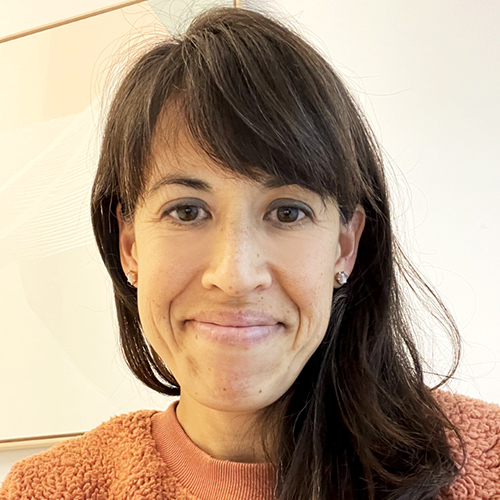
View Details / Enroll
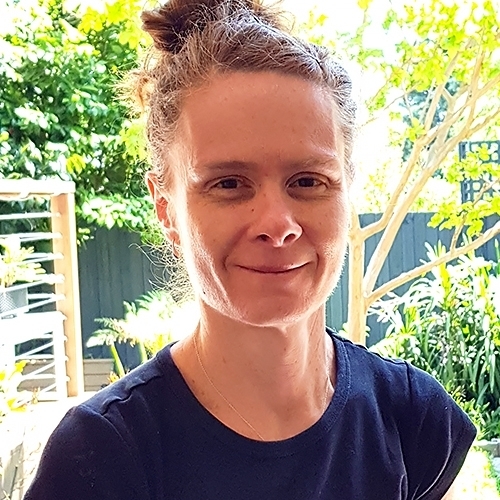
Yes You Can! Breastfeeding A Baby With Down Syndrome

Educator with the Australian Breastfeeding Association (ABA). She has a particular interest in breastfeeding and Down syndrome after her son was born with Down syndrome in 2014. Her journey of breastfeeding her son included a long inpatient hospitalization stay due to his treatment for cancer. She has worked in disability services for over 20 years including community learning disability nursing in the UK, supporting GPs to manage the heath needs of people with complex health conditions and intellectual disability, medical undergraduate education in intellectual disability and currently works in general practice as a Practice Disability Nurse. Heather facilitates Breastfeeding Education Classes to expectant parents, is a Trainer & Assessor in ABA’s training team and provides guidance and contributes to publications on breastfeeding a baby with Down syndrome.
As a health professional you may find yourself supporting a mother who is breastfeeding or requires support to breastfeed her baby with Down syndrome. Babies with Down syndrome can often have additional health needs, which may affect how successful they are with breastfeeding. Down syndrome or trisomy 21 is the most common genetic cause of intellectual disability for around 1 in 700 births worldwide. People with Down syndrome are not all the same but may have similar characteristic physical features, health and developmental challenges and some level of intellectual disability. Research has shown many benefits associated with breastfeeding a baby with Down syndrome. It contributes to establishing long term skill development, particularly with speech and feeding skills, as well as aiding brain growth. It also provides an opportunity for mother baby bonding during stressful periods after learning of their baby’s diagnosis. Regardless of these known benefits, some mothers may nevertheless be told their baby will not be able breastfeed. This presentation will explore some of the common challenges mothers may face when breastfeeding a baby with Down syndrome and tips on how to address these for the mother and baby. The material presented will also assist health professionals to support mothers with babies who may have similar health/developmental needs.
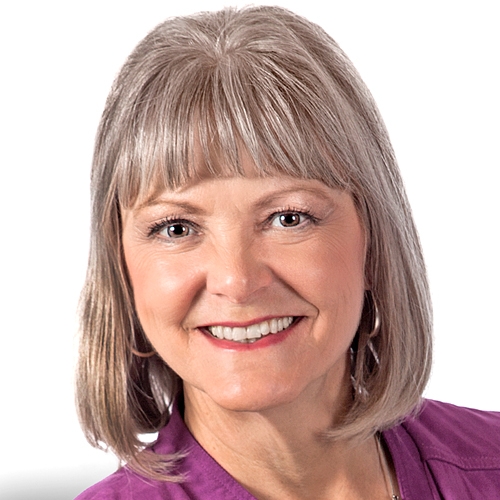
“Zooming Ahead”; Post-NICU Discharge Very-Low-Birth-Weight Infant Follow-up Program Goes Virtual

Karen has worn a number of hats in her nursing career but always comes back to her passion for premature babies. Her background includes NICU nurse, transport nurse and NICU educator, rural nursing, staff development, pediatrics, pediatric intensive care, and community health. For over 20 years Karen has lead Calgary’s specialized “Neonatal Transition Team”, which she will talk about today. Karen has presented locally, nationally, and internationally and has also been co-investigator in several research and quality improvement studies examining outcomes for very low birth weight infants. For nearly 30 years, Karen taught, wrote instructional material, and produced on-line courses for nurses to earn a certificate in neonatal nursing through Mount Royal University. Karen is a past-president of the Canadian Association of Neonatal Nurses and served on this national board for 12 years, and on the international board of the Council for International Neonatal Nurses for 3 years. In 2019, Along with co-author, Tammy Sherrow, Karen published the book “Preemie Care: A guide to navigating the first year with your premature baby”.
Topic: “Zooming Ahead”; Post-NICU Discharge Very-Low-Birth-Weight Infant Follow-up Program Goes Virtual - [View Abstract]
Many preterm infants remain vulnerable following discharge from the neonatal intensive care unit (NICU). Health challenges persist beyond the NICU including respiratory illness, breastfeeding progression, bottle feeding incoordination, behavior and development issues, impaired growth, infrequent stooling, and gastroesophageal reflux. Preterm infants are up to two times more likely than full term infants to be hospitalized in the first year of life. Parents are challenged to transition their premature baby home and to keep them home!
Community-based, specialized follow-up services following NICU discharge have a powerful impact. The Neonatal Transition Team in Calgary, Alberta, Canada provides post-NICU follow-up for very-low-birth-weight infants and their families. The team consists of community health registered nurses with advanced skill in premature infant outcomes, feeding and neurodevelopmental assessment, and a consultation partnership with nutritional and feeding specialists. While home visits have been the backbone of this service, the team questioned the feasibility and acceptance of virtual care and completed a three month quality improvement pilot. This virtual care pilot demonstrated optimization of health-care resources by providing safe, high-quality care at a reduced operational cost. The pilot was instrumental in the team’s management during the SARS-COVID-19 pandemic. Virtual care has been fully operationalized into the service delivery model and expanded to serve other newborns with feeding or growth challenges.
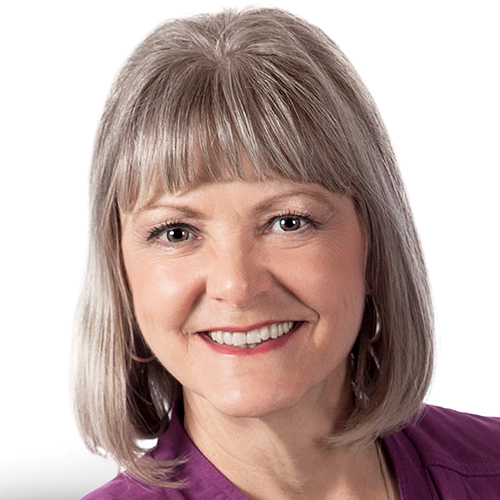
View Details / Enroll




